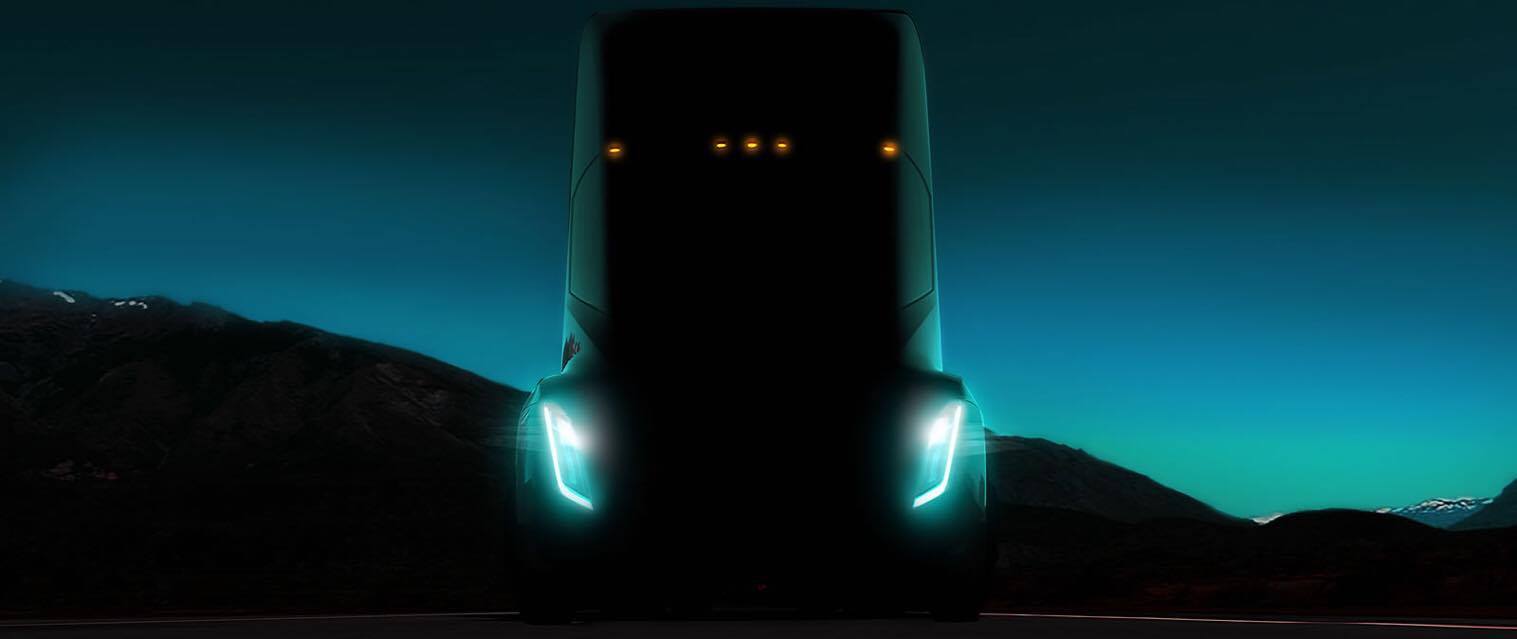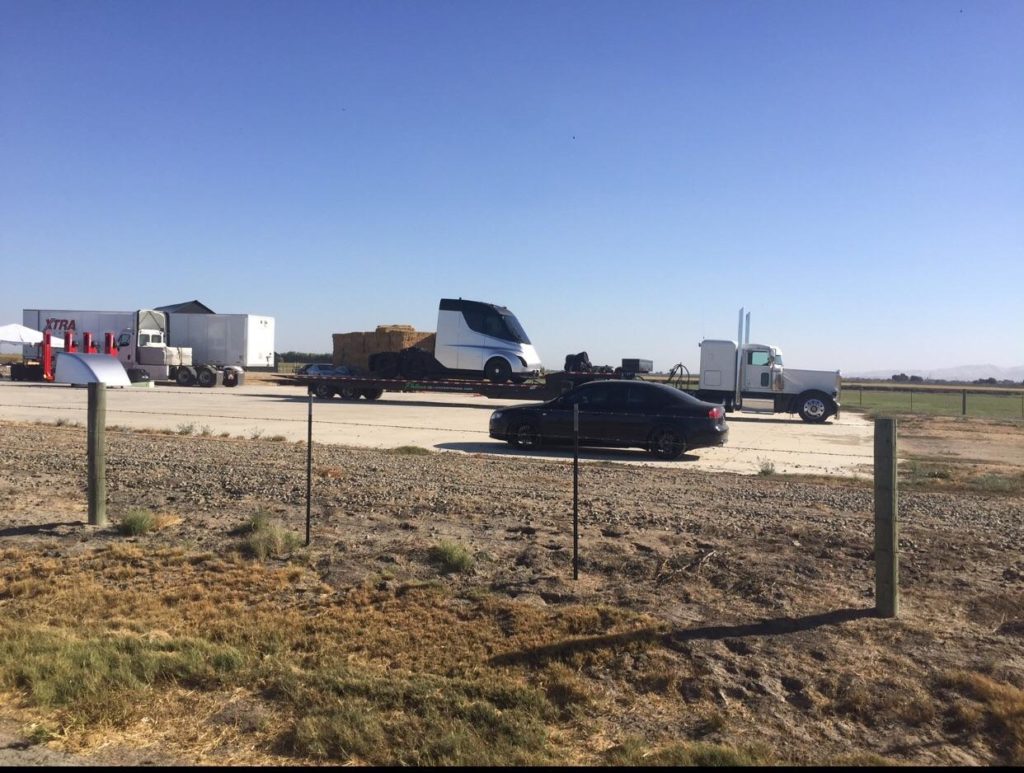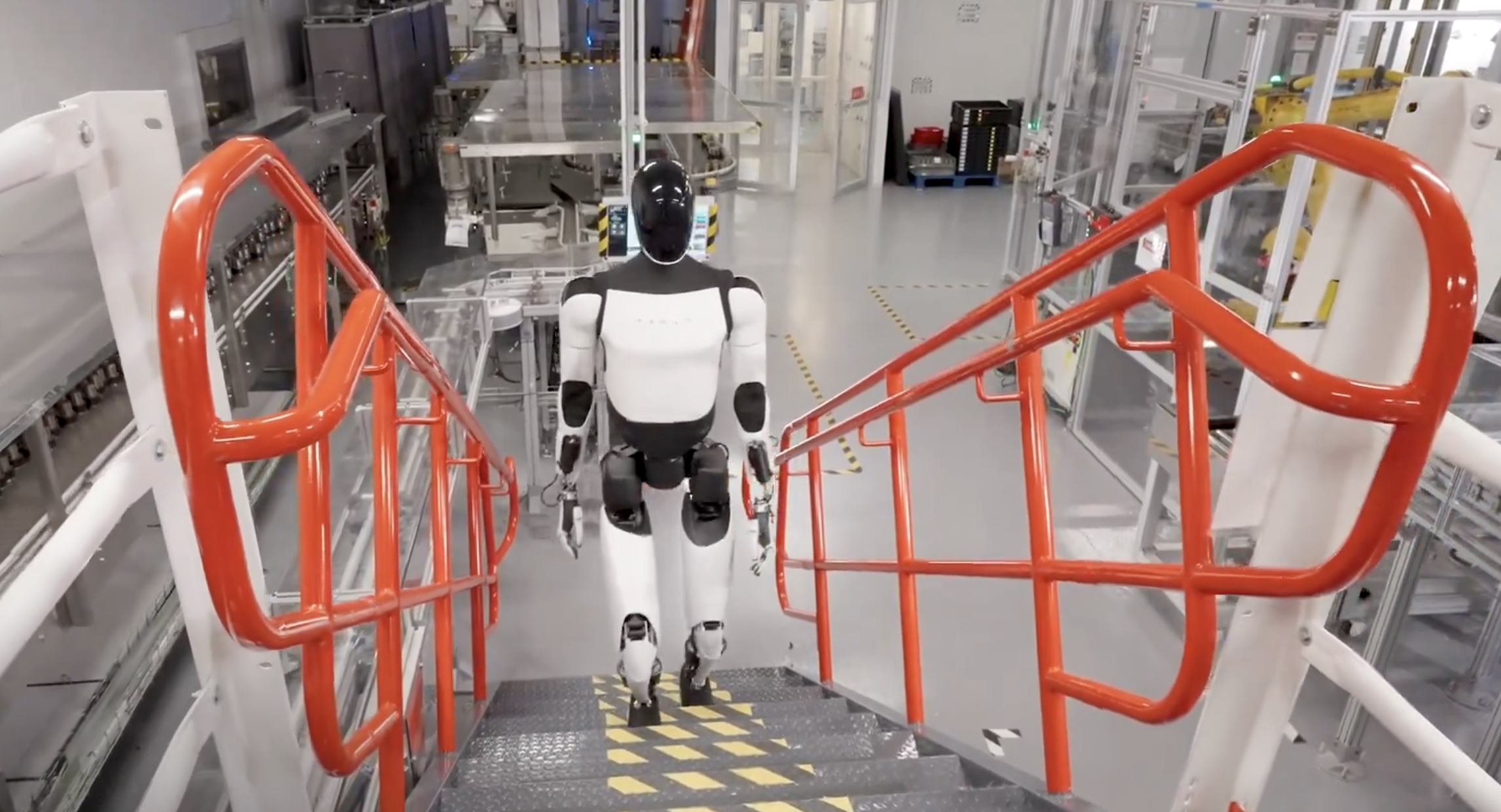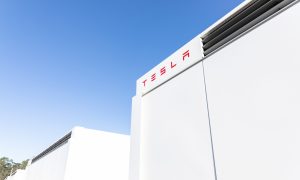

Investor's Corner
How Tesla’s Semi-truck could disrupt the commercial trucking industry
Tesla is already taking the world by storm with its fleet of consumer electric cars and the company’s push toward fully autonomous self-driving technology. Now, the Silicon Valley-based car maker and technology company has set its sights on the trucking industry, with the introduction of a fully electric semi-truck on the horizon. What will this mean to the trucking industry if Tesla succeeds?
Electric Semi-Trucks
With the official unveiling set for Oct. 26, Tesla fans and industry experts are speculating about the kind of impact its electric semi-truck could have on the commercial trucking industry as a whole.
The idea behind the Tesla Semi, which Elon Musk has affectionately called a “beast”, is to make it less expensive to operate than its gas and diesel counterparts on account of reduced maintenance, fuel, and insurance costs. This could result in operational cost reductions of 70% over existing trucks on the market, according to Adam Jonas of Morgan Stanley.
Tesla has also gathered billion of miles of driving data from the Autopilot hardware that’s equipped on its latest Model S and Model X vehicles. Using this vast dataset, Tesla aims to create a detailed 3D map of the world that will increasingly become more detailed as fleet data is collected. This dataset allows Tesla’s Vision and artificial intelligence team to train complex algorithms for its Full Self-Driving technology, which will one day allow Tesla’s fleet of consumer vehicles and its upcoming semi-truck to recognize traffic indicators, identify pedestrians and, overall, operate on near-parity with human decision making, before exceeding it.
ASLO SEE: Tesla Autopilot and artificial intelligence: The unfair advantage
Being able to offer this level of automation will be transformative for entire industries, including the commercial trucking segment. Companies that have traditionally built their shipping and logistics models based on human capabilities will be able to better manage their manpower costs, while increasing efficiency at safer levels across the organization through Tesla’s automation. Combined with the fact that a Tesla Semi will emit no tailpipe emissions, in a world where regulations on emission standards are becoming increasingly more strict and manufacturers are pushing to transition toward all-electric fleets, and the industry impact of Tesla’s semi-truck becomes even more clear.

Tesla’s Semi-truck spied ahead of its October 26, 2017 official unveiling event.
Execution
We’re still waiting for exact specifications for Tesla’s Semi like range and hauling capacity, but early reports by Reuters suggests that the electric truck will have a range between 200 and 300 miles. The relatively short range by long-haul trucking standards means that Tesla will likely target regional hauling. Any further than that would require a massive a battery that would be cost prohibitive for most companies looking to incorporate Tesla into its expense model.
Electric trucks might sound like a great innovation, but they aren’t without perils given current technology. First, electric trucks are going to require a new class of technicians to keep them primed and operating efficiently. Yes, Tesla cars are known to operate hundreds of thousands of miles without much trouble, but there’s no way to project how the wear and tear of the long haul will affect these new electric trucks.
Production will be the other big question. Tesla CEO Elon Musk is known to have an optimistic outlook when it comes to delivering his vision to the masses. But keeping to deadlines couldn’t be more important to a consumer and commercial goods industry that’s largely dependent on having a smooth running supply chain. Companies that commit to augmenting its business with a Tesla Semi or looking to transition in full to an all-electric fleet of trucks will certainly have less tolerance for delays than the general Model S, Model X, and Model 3 consumer market. This is especially the case for publicly traded companies.
Tune in on Teslarati as we bring you coverage on all Tesla Semi developments. And be sure to follow us @Teslarati or like us on Facebook to see live behind the scenes coverage from the Tesla Semi event on October 26.
Investor's Corner
Tesla could save $2.5B by replacing 10% of staff with Optimus: Morgan Stanley
Jonas assigned each robot a net present value (NPV) of $200,000.

Tesla’s (NASDAQ:TSLA) near-term outlook may be clouded by political controversies and regulatory headwinds, but Morgan Stanley analyst Adam Jonas sees a glimmer of opportunity for the electric vehicle maker.
In a new note, the Morgan Stanley analyst estimated that Tesla could save $2.5 billion by replacing just 10% of its workforce with its Optimus robots, assigning each robot a net present value (NPV) of $200,000.
Morgan Stanley highlights Optimus’ savings potential
Jonas highlighted the potential savings on Tesla’s workforce of 125,665 employees in his note, suggesting that the utilization of Optimus robots could significantly reduce labor costs. The analyst’s note arrived shortly after Tesla reported Q2 2025 deliveries of 384,122 vehicles, which came close to Morgan Stanley’s estimate and slightly under the consensus of 385,086.
“Tesla has 125,665 employees worldwide (year-end 2024). On our calculations, a 10% substitution to humanoid at approximately ($200k NPV/humanoid) could be worth approximately $2.5bn,” Jonas wrote, as noted by Street Insider.
Jonas also issued some caution on Tesla Energy, whose battery storage deployments were flat year over year at 9.6 GWh. Morgan Stanley had expected Tesla Energy to post battery storage deployments of 14 GWh in the second quarter.
Musk’s political ambitions
The backdrop to Jonas’ note included Elon Musk’s involvement in U.S. politics. The Tesla CEO recently floated the idea of launching a new political party, following a poll on X that showed support for the idea. Though a widely circulated FEC filing was labeled false by Musk, the CEO does seem intent on establishing a third political party in the United States.
Jonas cautioned that Musk’s political efforts could divert attention and resources from Tesla’s core operations, adding near-term pressure on TSLA stock. “We believe investors should be prepared for further devotion of resources (financial, time/attention) in the direction of Mr. Musk’s political priorities which may add further near-term pressure to TSLA shares,” Jonas stated.
Investor's Corner
Two Tesla bulls share differing insights on Elon Musk, the Board, and politics
Two noted Tesla bulls have shared differing views on the recent activities of CEO Elon Musk and the company’s leadership.

Two noted Tesla (NASDAQ:TSLA) bulls have shared differing views on the recent activities of CEO Elon Musk and the company’s leadership.
While Wedbush analyst Dan Ives called on Tesla’s board to take concrete steps to ensure Musk remains focused on the EV maker, longtime Tesla supporter Cathie Wood of Ark Invest reaffirmed her confidence in the CEO and the company’s leadership.
Ives warns of distraction risk amid crucial growth phase
In a recent note, Ives stated that Tesla is at a critical point in its history, as the company is transitioning from an EV maker towards an entity that is more focused on autonomous driving and robotics. He then noted that the Board of Directors should “act now” and establish formal boundaries around Musk’s political activities, which could be a headwind on TSLA stock.
Ives laid out a three-point plan that he believes could ensure that the electric vehicle maker is led with proper leadership until the end of the decade. First off, the analyst noted that a new “incentive-driven pay package for Musk as CEO that increases his ownership of Tesla up to ~25% voting power” is necessary. He also stated that the Board should establish clear guidelines for how much time Musk must devote to Tesla operations in order to receive his compensation, and a dedicated oversight committee must be formed to monitor the CEO’s political activities.
Ives, however, highlighted that Tesla should move forward with Musk at its helm. “We urge the Board to act now and move the Tesla story forward with Musk as CEO,” he wrote, reiterating its Outperform rating on Tesla stock and $500 per share price target.
Tesla CEO Elon Musk has responded to Ives’ suggestions with a brief comment on X. “Shut up, Dan,” Musk wrote.
Cathie Wood reiterates trust in Musk and Tesla board
Meanwhile, Ark Investment Management founder Cathie Wood expressed little concern over Musk’s latest controversies. In an interview with Bloomberg Television, Wood said, “We do trust the board and the board’s instincts here and we stay out of politics.” She also noted that Ark has navigated Musk-related headlines since it first invested in Tesla.
Wood also pointed to Musk’s recent move to oversee Tesla’s sales operations in the U.S. and Europe as evidence of his renewed focus in the electric vehicle maker. “When he puts his mind on something, he usually gets the job done,” she said. “So I think he’s much less distracted now than he was, let’s say, in the White House 24/7,” she said.
TSLA stock is down roughly 25% year-to-date but has gained about 19% over the past 12 months, as noted in a StocksTwits report.
Investor's Corner
Cantor Fitzgerald maintains Tesla (TSLA) ‘Overweight’ rating amid Q2 2025 deliveries
Cantor Fitzgerald is holding firm on its bullish stance for the electric vehicle maker.

Cantor Fitzgerald is holding firm on its bullish stance for Tesla (NASDAQ: TSLA), reiterating its “Overweight” rating and $355 price target amidst the company’s release of its Q2 2025 vehicle delivery and production report.
Tesla delivered 384,122 vehicles in Q2 2025, falling below last year’s Q2 figure of 443,956 units. Despite softer demand in some countries in Europe and ongoing controversies surrounding CEO Elon Musk, the firm maintained its view that Tesla is a long-term growth story in the EV sector.
Tesla’s Q2 results
Among the 384,122 vehicles that Tesla delivered in the second quarter, 373,728 were Model 3 and Model Y. The remaining 10,394 units were attributed to the Model S, Model X, and Cybertruck. Production was largely flat year-over-year at 410,244 units.
In the energy division, Tesla deployed 9.6 GWh of energy storage in Q2, which was above last year’s 9.4 GWh. Overall, Tesla continues to hold a strong position with $95.7 billion in trailing twelve-month revenue and a 17.7% gross margin, as noted in a report from Investing.com.
Tesla’s stock is still volatile
Tesla’s market cap fell to $941 billion on Monday amid volatility that was likely caused in no small part by CEO Elon Musk’s political posts on X over the weekend. Musk has announced that he is forming the America Party to serve as a third option for voters in the United States, a decision that has earned the ire of U.S. President Donald Trump.
Despite Musk’s controversial nature, some analysts remain bullish on TSLA stock. Apart from Cantor Fitzgerald, Canaccord Genuity also reiterated its “Buy” rating on Tesla shares, with the firm highlighting the company’s positive Q2 vehicle deliveries, which exceeded its expectations by 24,000 units. Cannacord also noted that Tesla remains strong in several markets despite its year-over-year decline in deliveries.
-

 Elon Musk2 weeks ago
Elon Musk2 weeks agoTesla investors will be shocked by Jim Cramer’s latest assessment
-

 News2 days ago
News2 days agoTesla debuts hands-free Grok AI with update 2025.26: What you need to know
-

 Elon Musk4 days ago
Elon Musk4 days agoxAI launches Grok 4 with new $300/month SuperGrok Heavy subscription
-

 Elon Musk7 days ago
Elon Musk7 days agoElon Musk confirms Grok 4 launch on July 9 with livestream event
-

 News1 week ago
News1 week agoTesla Model 3 ranks as the safest new car in Europe for 2025, per Euro NCAP tests
-

 Elon Musk2 weeks ago
Elon Musk2 weeks agoxAI’s Memphis data center receives air permit despite community criticism
-

 News4 days ago
News4 days agoTesla begins Robotaxi certification push in Arizona: report
-

 Elon Musk2 weeks ago
Elon Musk2 weeks agoTesla scrambles after Musk sidekick exit, CEO takes over sales














